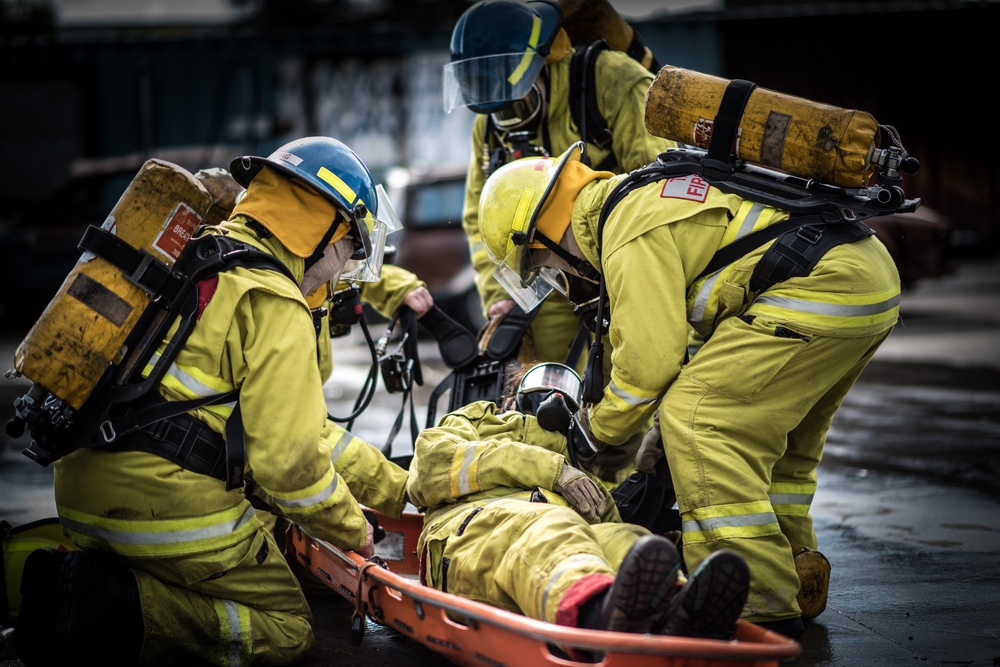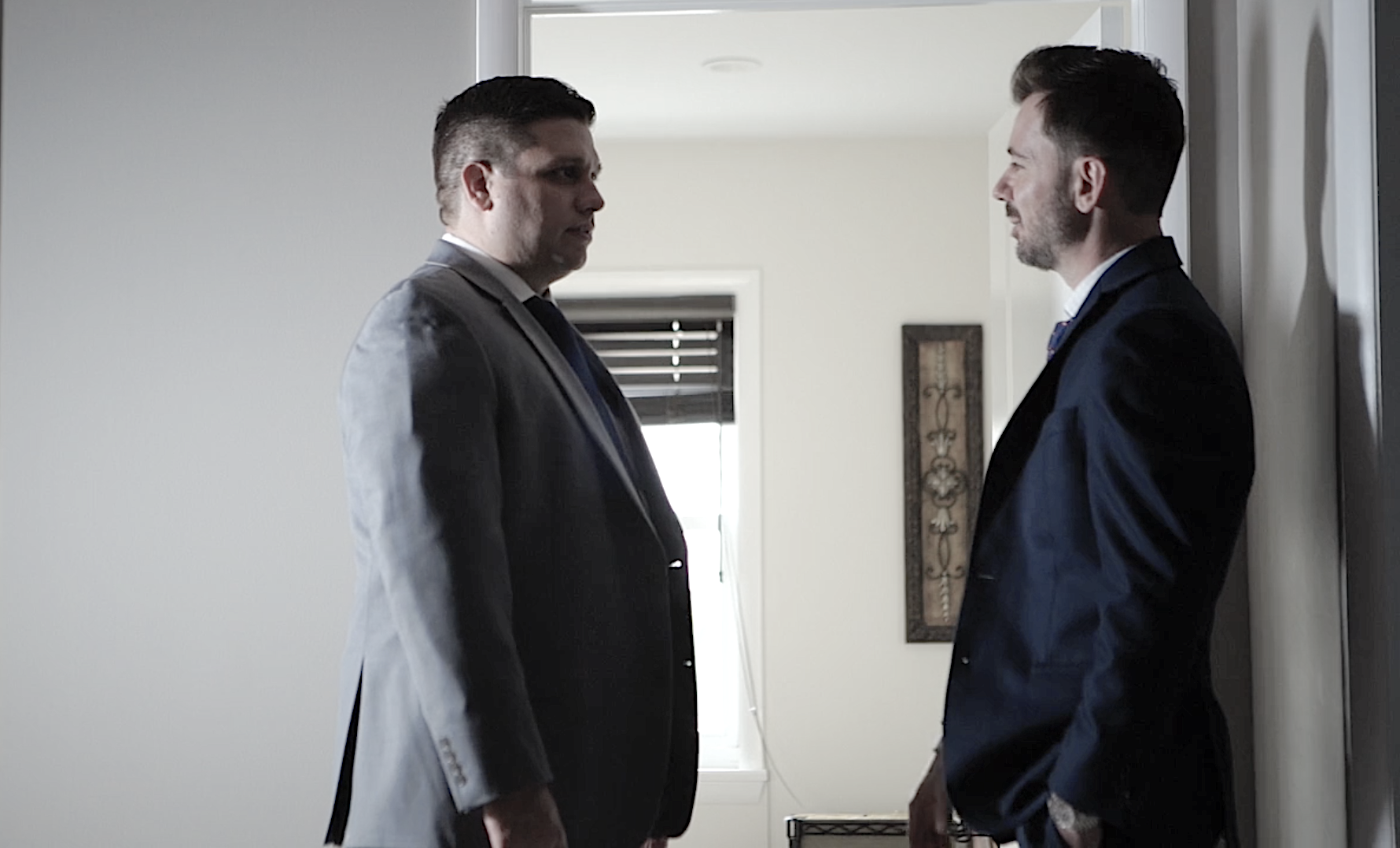
The line of duty is a calling that few answer, yet the risks associated with it remain unyielding. Police officers, firefighters, and other first responders constantly put their lives on the line to ensure our communities are safe. But when tragedy strikes, families are left grappling with immense pain, coupled with legal complexities. This is where expert legal advice becomes indispensable. In this blog, we'll address the support available to families of police officers and firefighters who tragically lose their lives on the job.
The Harsh Reality of the Line of Duty
Serving as a police officer or firefighter requires immense bravery. These dedicated professionals face hazardous situations regularly - from responding to violent crimes to fighting raging infernos. Unfortunately, these risks can sometimes lead to fatal accidents.
In 2020 alone, 264 officers died in the line of duty in the United States. On the firefighting front, 60 firefighters tragically lost their lives while on duty. Behind these numbers are grieving families struggling to cope with sudden loss and navigate a maze of legal processes.
Legal Provisions: The Public Safety Officers' Benefits (PSOB) Program
The Public Safety Officers' Benefits (PSOB) Program is a federal initiative that provides death benefits, disability benefits, and education benefits to survivors of fallen law enforcement officers, firefighters, and other first responders, as well as to officers who have been permanently and totally disabled in the line of duty.
Here's a summary of the key legal provisions and elements of the PSOB Program:
1. Program Establishment
The PSOB Program was established by Congress in 1976 under the Public Safety Officers' Benefits Act.
2. Eligibility
The program benefits apply to:
- Public safety officers who die or become permanently disabled as a direct result of a traumatic work injury sustained in the line of duty.
- The family members and educational beneficiaries of such officers.
3. Death Benefits
- This is a one-time financial benefit provided to eligible beneficiaries when a public safety officer dies as a direct and proximate result of a personal injury sustained in the line of duty.
- The exact amount is adjusted each fiscal year.
4. Disability Benefits
- Officers who become permanently and totally disabled as a result of a catastrophic personal injury sustained in the line of duty may be eligible for this benefit. The injury must prevent them from performing any gainful work in the future.
- The benefit amount is the same as the death benefit and is also adjusted annually.
5. Education Benefits
- The PSOB Program provides financial assistance for higher education (known as the Public Safety Officers' Educational Assistance (PSOEA) benefit) for the children and spouses of public safety officers who either died in the line of duty or became permanently disabled.
- This assistance can be used to cover tuition, fees, room and board, books, supplies, and other education-related costs.
6. Claims and Appeals
- Beneficiaries or claimants who disagree with a PSOB determination can appeal the decision. There's a specific process and timeframe for filing an appeal.
- If the claim is again denied upon reconsideration, claimants have the right to request a hearing before a Hearing Officer and, subsequently, to appeal to the Director of the Bureau of Justice Assistance (BJA).
7. Exclusions
Certain circumstances may lead to the denial of benefits, such as:
- The intentional misconduct of the public safety officer or the voluntary intoxication at the time of death or injury.
- The officer's intentional infliction of their injury.
- The officer was performing their duties in a grossly negligent manner at the time of the fatal or catastrophic injury.
8. Agencies Involved
The program is administered by the Bureau of Justice Assistance (BJA), a component of the Office of Justice Programs, U.S. Department of Justice.
State Provisions: Workers' Compensation and Death Benefits
In addition to federal programs, most states offer workers' compensation benefits to the families of deceased workers, including police officers and firefighters. These benefits can include:
- Burial Expenses: Coverage for funeral costs.
- Dependent Benefits: Ongoing compensation for dependents, usually based on the deceased’s salary.
- Medical Expenses: Coverage for any medical treatment related to the fatal incident.
Each state has its specific provisions and qualification criteria, which can sometimes overlap with federal benefits. Having a clear understanding of these interplays is essential to ensure families receive what they're entitled to.
Legal Challenges and the Importance of Representation
While there are programs designed to support grieving families, securing these benefits isn’t always straightforward:
- Determining Line-of-Duty Deaths: Sometimes, it might be challenging to establish if a death qualifies as a 'line-of-duty' fatality. For instance, if a police officer dies in a car accident while off-duty but responding to an emergency, is it considered a line-of-duty death?
- Overlapping Benefits: Understanding how state and federal benefits interact can be intricate. Families might unintentionally miss out on certain benefits due to a lack of awareness.
- Timely Filings: Both the PSOB program and state-based workers' compensation have specific timelines for filing claims. Missing these can jeopardize the claim entirely.
Securing the expertise of a knowledgeable legal team, like the dedicated professionals at Camili & Capo, PA, can alleviate these challenges. We're here to ensure families don’t have to battle bureaucracies alone during their time of grief.
Support Beyond Legal Representation
Beyond navigating legal complexities, the loss of a loved one in the line of duty has profound emotional and psychological impacts on families. Several organizations, such as Concerns of Police Survivors (COPS) and the National Fallen Firefighters Foundation (NFFF), offer counseling, support groups, and resources to help families cope.
Camili & Capo, PA firmly believes in a holistic approach. While we offer meticulous legal expertise, we also guide families to the appropriate emotional and psychological support they might need.
Contact an Experienced Fatal Work Accident Lawyer at Camili & Capo, PA for a Free Consultation About Your Case Today
The tragic loss of a police officer or firefighter in the line of duty is a profound tragedy. While no amount of compensation can replace the loss, ensuring families receive the full range of benefits they're entitled to can ease the financial and administrative burdens during such a challenging time.
If you or someone you know has experienced such a loss, the team at Camili & Capo, PA is here to provide compassionate and expert legal assistance. We honor the sacrifices made by our brave first responders by ensuring their families are supported and protected in their absence. Contact us today to schedule a consultation to discuss your case.

